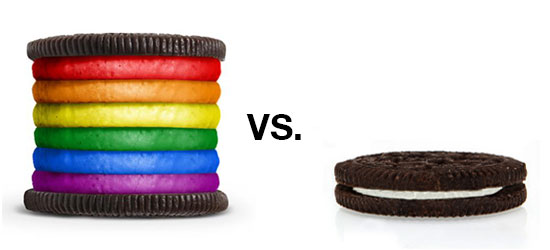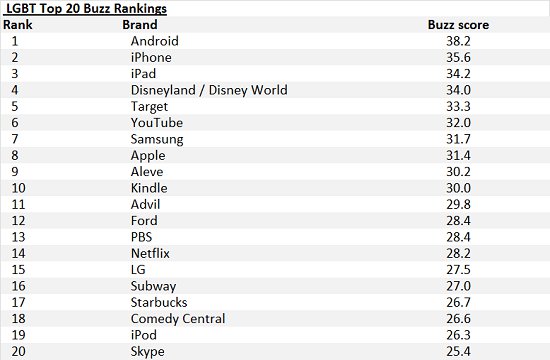
Since the June ’69 Stonewall Riots in New York City, The Lesbian, Gay, Bisexual and Transgender (LGBT) community has fought for and celebrated their sexual diversity this time of the year. Slowly, one weekend in June evolved into an entire month. In fact, five United States Presidents — including President Barack Obama this year — have officially declared June to be National Pride Month.

The obvious question now is: how smart is this move for corporations?
While businesses make their marketing decisions based on dollars and cents, marketing to this particular demographic can be trickier than marketing to other niche groups, like cat lovers or motorcycle enthusiasts.
— US News Article, How Corporations are Profiting from Gay Pride
According to a poll released earlier this month, the majority of Americans support same sex marriage. But questions still remain. By marketing to a demographic like the LGBT community, which has become a political entity, are they alienating dissenters? Are companies supporting the cause because they actually support the cause or because the LGBT community (and their supporters) has huge dollar signs attached to it? By branding themselves as “LGBT-friendly,” do these corporations get more than they give?
“I love you Oreo, maybe I will start buying your products now” to “Bye bye Oreos… Definitely NOT supporting this” to “I like turtles.”
While it’s most certainly happened to all of the sponsors, Oreo dealt with a bit of a backlash this week after publicly supporting Pride on their Facebook page. They posted an image of a six-layered, rainbow-colored Pride cookie. Almost immediately, the war of words began. Supporters of gay rights commended Oreo for their stance. Dissenters took the opposite approach, vowing to forever boycott the cookie. At the time of this writing, more than 19,000 comments have been left. The comments varied from:
Ok, that last one is irrelevant and — as you can imagine — many of the other comments were a little more “verbose,” but you get the point. There are people on both sides — prepared to love or hate these companies depending on which side of the political spectrum they declare their allegiance.
In the earlier days, companies like Bud Light supported the sexual equality issue but they often did so discreetly. Not any more. Today, many of these brands have been identified, publicly, as being supportive. A list of the top 20 LGBT-friendly brands was released to coincide with Pride month. These companies are no longer in the niche market; they are no longer supporting the gay community within the gay community, they are doing so in broad daylight.
So, are companies alienating the rest of the population by taking a forward stance? Would they lose the majority support by remaining neutral? Is neutrality even an option anymore? Will this shift in marketing by big companies change the way marketing works?
Let us know what you think!


These companies know the way the tide is going. Getting in early on support for equal rights for gays is like being a 20th century pioneer in putting minorities in ads. When people look back on these companies, they will reflect well in history.
Thanks for your post. I would like to comment that the price of car insurance differs a lot from one insurance plan to another, for the reason that there are so many different facets which play a role in the overall cost. As an example, the model and make of the vehicle will have a tremendous bearing on the purchase price. A reliable ancient family vehicle will have a more affordable premium than a flashy fancy car.